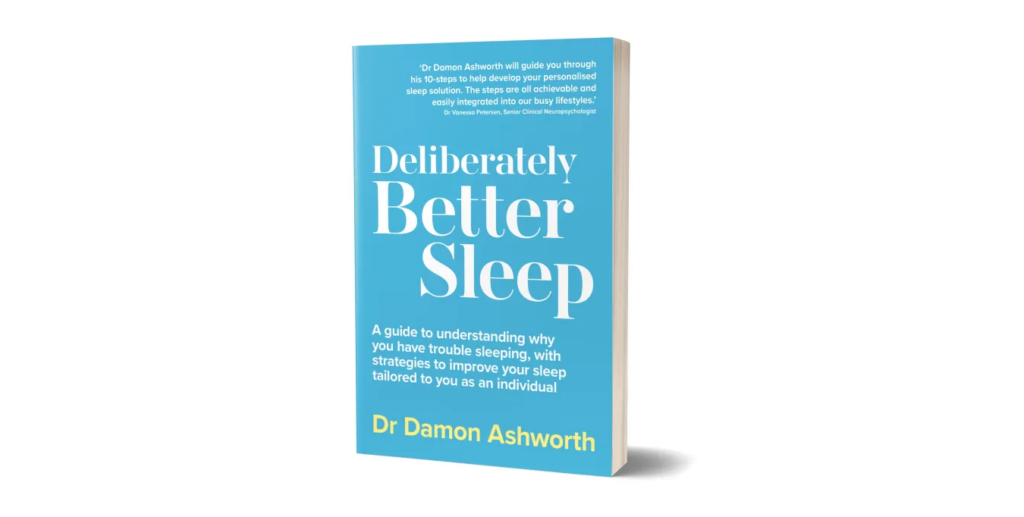This is part two of a blog series. You will find part one here.
There is a huge amount of advice about strategies to improve sleep. Yet, how should you decide what to do to sleep better? Back in 2017, I tested out 25 different sleep strategies for two weeks each. I rated each strategy based upon four criteria. These are my top four strategies.
1. Stimulus control: 85/100
- Only go to bed when sleepy. Don’t use the bed or bedroom for anything apart from sleep or sex.
- If you can’t fall asleep within 15-20 minutes, get out of bed and do something relaxing in another room until you feel sleepy again, then return to bed.
- Wake up and get out of bed at the same time each morning 7 days a week.
- No napping during the day.
2. Winding down before bed: 85/100
- Switch off from work for the day at least two hours before sleep.
- No looking at the computer or phone or tablet after this point.
- Do things to try to relax or lower your arousal or chronic stress levels.
- Once you feel sleepy, as long as it is around your normal sleep time (+/- 30 minutes is fine), go to bed.
3. Sleep restriction: 81/100
- Determine your average amount of sleep over the last week. Say it was 6 hours. Then add 30 minutes to it. This is your new time in bed prescription for the next week (e.g. 11:30pm – 6:00am).
- Do not nap during the day.
- Track how much you sleep per night over the next week. If your sleep efficiency is above 90% (6 hours of sleep / 6.5 hours in bed = 92.31%),
- increase your time in bed for the next week by 15 to 30 minutes (e.g. 11:15 – 6:00am or 11:00pm – 6:00am). If it is between 85% and 90% (5.6/6.5 hours = 86.15%), keep your time in bed prescription the same. If it is below 85% (5/6.5 = 76.92%), reduce your time in bed for the next week by a further 15 minutes (e.g. 11:45pm – 6:00am).
- Track your sleep for a week, determine your new sleep efficiency, and then increase or decrease your time in bed based on the same criteria.
- Do not reduce your time in bed prescription below 5.5 hours per night.
4. Relaxation strategies pre-sleep: 81/100
- While winding down for bed, try progressive muscle relaxation, tensing a muscle group, breathing in slowly and deeply, then exhaling all the air. As you exhale, release the tension in your muscles and relax them as much as possible. Then repeat with the next muscle group until you have covered your whole body. This can help you relax more physically pre bed.
- In bed, try either abdominal relaxing, breathing slowly and deeply into your belly, pausing for a moment, and then exhaling all your air with the out breath. Try to breathe out at a slower rate than you breath in.
- Focusing on your breathing can help you to worry less about other things and fall off to sleep. If you don’t like focusing on your breath, try imagery or visualisation. Picture a relaxing or peaceful setting for yourself. It may be a place you really liked from when you were younger and felt safe and calm in, or an imaginary and made-up safe place filled with all of the things you like. It may have the people you care about most in it, or just yourself. Fully immerse yourself in it, and notice what you can see, hear, touch, taste and smell.
- By focusing on this before sleep, you may also be able to drift off sooner than if you focused on things that are more likely to worry you or stress you out, such as not being able to sleep or worrying about how you will go with things tomorrow.
Now, just because I loved the above four sleep strategies and found them the most useful to me, it doesn’t mean that you will. But it might help to point you in the right direction of what you can try for yourself.
If you aren’t sure what to do, start with one of these things, especially stimulus control, sleep restriction or progressive muscle relaxation. All three are considered empirically supported interventions for insomnia and approved by the American Academy of Sleep Medicine.
If this still feels too hard, consult with a sleep psychologist. We can help you improve your sleep, with benefits for your physical and emotional health. I recommend booking in with a psychologist who has had some experience with Cognitive Behavioural Therapy for Insomnia. It is considered the first line treatment for chronic insomnia, and just as effective as sleeping pills for short-term benefits, and more effective than them for long-term benefits.
To book an appointment with a psychologist contact the Centre for Clinical Psychology 03 9077 0122, or book online www.ccp.net.au



